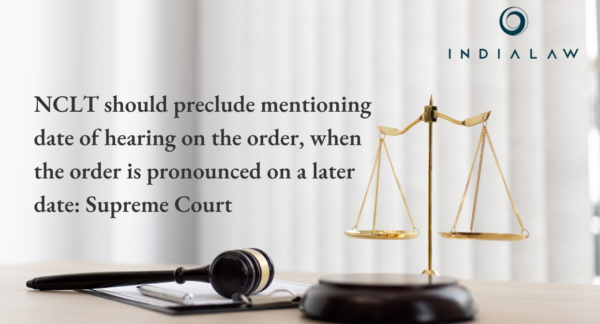President Approves Amendments to Insolvency & Bankruptcy Code


Paving the way for certain big-ticket reforms to the Insolvency and Bankruptcy Code 2016 (“Code”), the President has given his assent to the promulgation of Insolvency & Bankruptcy Code (Amendment) Ordinance, 2018 (“Amendment”). Significant changes brought about by the Amendment are as follows:
Homebuyers to be treated as financial creditors:
One of the significant features of the Amendment is that it recognizes homebuyer’s status as as financial creditors under the Code. Status of homebuyers of certain under construction project has been a contentious issue recently. Before the Amendment, they were not recognized as financial creditor or operation creditor, the two categories of creditors whose rights are predominantly protected under the Code. As a result, thousands of homebuyers were left in lurch, when insolvency proceedings were commenced against the developers of under construction buildings. The Amendment brings a big relief to homebuyers as this would give them due representation in the Committee of Creditors and make them an integral part of the decision making process. It will also enable homebuyers to invoke Section 7 of the Code against errant developers.
Special Exemption to MSMEs:
The Amendment brings about certain relaxation to Micro Small and Medium Enterprises (MSME) considering their importance to the economy. The Amendment allows promoters of MSMEs, which are undergoing insolvency process, to bid for their enterprise provided they are not declared as willful defaulters and are not disqualified under other provisions not related to default. It should be noted that Section 29 A of the Code, which was introduced through an earlier ordinance, debarred promoters of NPAs from participating in the bidding process. The Amendment does away with this restriction in respect of MSMEs. This may improve the prospects of resolution for MSMEs going through resolution process. The Amendment also allows Government to provide exemptions or modification to MSMEs in the public interest.
Reduction of Voting Threshold
The Amendment brings down voting threshold from 75% to 66% for all major decisions such as approval of resolution plan, extension of CIRP period, etc. This has been done with an objective encouraging more resolution over liquidation. The voting threshold for routine decisions has been reduced to 51%.
Applicability of Limitation Act
The Amendments clarifies that the Limitation Act 1963 is applicable to proceedings before the Adjudicating Authorities and Appellate Authorities under the Code. This settles the contentious issues regarding the applicability of laws of limitation over the proceedings under the Code.
Stringent withdrawal provisions
The Amendments makes withdrawal of cases more stringent. After the admission, withdrawal requires approval of 90% of the Committee of Creditors. Furthermore, such withdrawal will only be permissible before publication of notice inviting Expressions of Interest (EoI). In other words, there can be no withdrawal once the process of EoIs and bids commences.
No Moratorium to proceeding against guarantors
The Amendment also clarifies that moratorium period in respect of the corporate debtor is not applicable to proceedings against guarantors. There has been lot of ambiguities regarding the applicability of moratorium against guarantors of corporate debtor due to conflicting judgments. The Amendment settles these issues.
Fine tuning of Section 29A
The existing Section 29(A) of the IBC has been fine-tuned to exempt pure play financial entities from being disqualified on account of NPA. Similarly, a resolution application holding an NPA, by virtue of acquiring it under the IBC, has been provided with a three-year cooling-off period, from the date of such acquisition. In other words, such NPA shall not disqualify the resolution applicant during the currency of the three-year grace period. Further, considering the wide range of disqualifications contained in Section 29(A) of the Code, the Amendment provides that the Resolution Applicant shall submit an affidavit certifying its eligibility to bid. This places the primary onus on the resolution applicant to certify its eligibility.
Grace period of one year of approvals
The Amendment provides for a minimum one-year grace period for the successful resolution applicant to fulfill various statutory obligations required under different laws. This would help the new management to successfully implement the resolution plan.
Other changes
The Amendment also provides for a mechanism to allow participation of security holders, deposit holders and all other classes of financial creditors that exceed a certain number, in meetings of the Committee of Creditors, through the authorized representation. The other changes includes introducing the requirement of special resolution for corporate debtors to themselves trigger insolvency resolution under the Code; liberalizing terms and conditions of interim finance to facilitate financing of corporate debtor during resolution period; etc.



